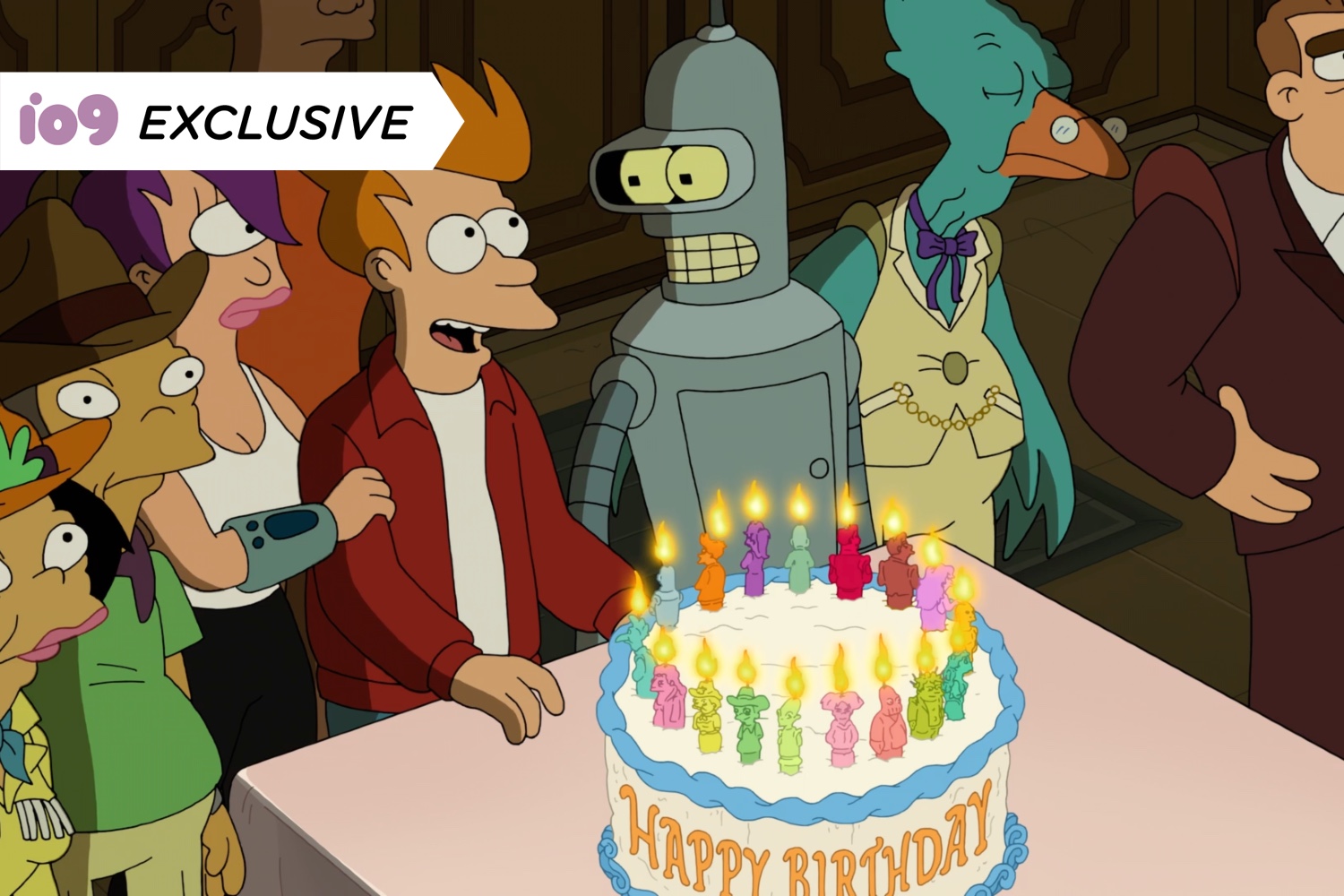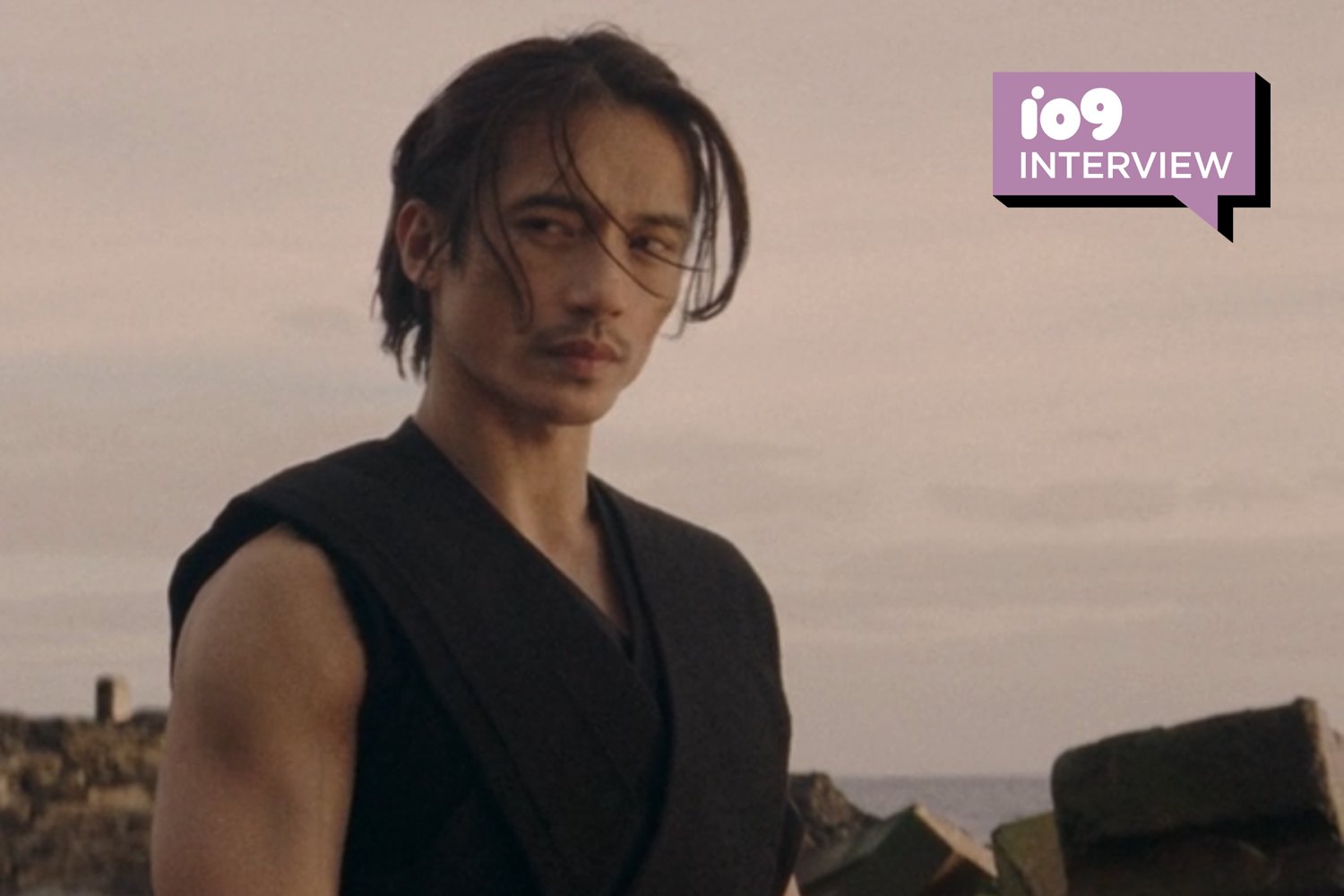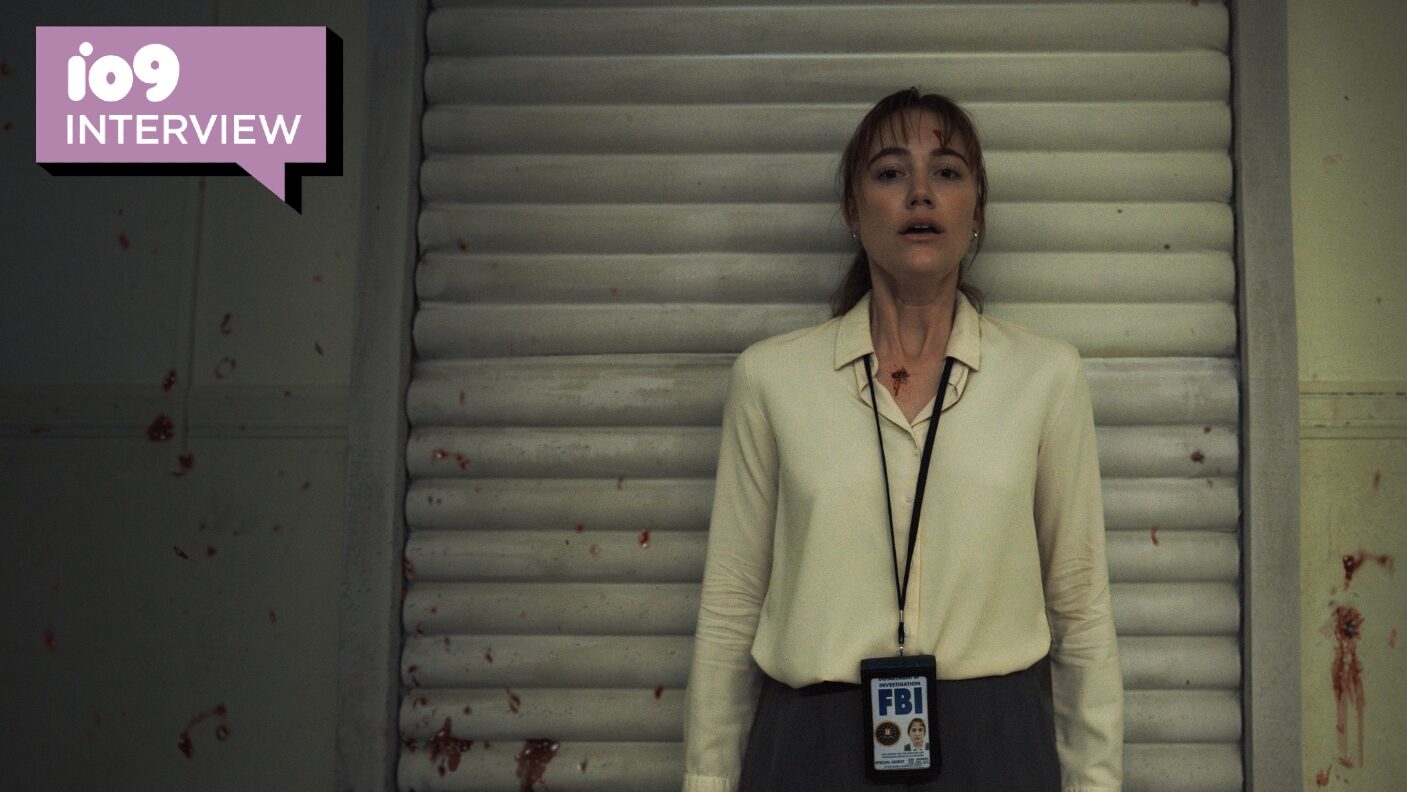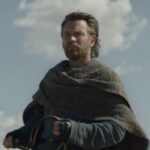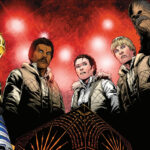The much-anticipated adaptation of Susannah Clarke’s Jonathan Strange & Mr. Norrell is finally coming to US shores this weekend. But how hard was it to bring this Regency world of magic and moral ambiguity to television? We sat down with series writer Peter Harness to learn more about making Strange & Norrell.
io9: Have you been pleased with the reaction to the show in the UK so far?
Peter Harness: I’ve been extremely pleased with the reaction. People seem to have been really falling in love with it, which is nice to hear! I think that it’s a book that a lot of people love, myself included, and it’s a kind of world that’s easy to get lost in, and the characters are very easy to fall for — and if people are gradually doing that, I’m glad about it. I think that people get to know about it, and the more episodes that are out there to be caught up on, it’ll be good, because it’s good watched in binges, like a lot of series are these days.
I’m hearing a lot of love for it, which, you know, you don’t really get for something like Wallander (Harness’ BBC adaptations of Henning Mankell’s crime novels). [Strange & Norrell] is a thing that you can get passionate about.
You’ve just mentioned Wallander, and you’ve had experience of doing other adaptations in the past. What drew you to Strange & Norrell?
Harness: I’ve said this before, but I [had] decided to not really do any more adaptations. Then the chance came to do Jonathan Strange & Mr. Norrell, and it’s really more or less my favorite book. I knew what a kind of enormous challenge it would be to adapt for TV, and do it justice, so I couldn’t really turn that down! Plus, I knew I was going to be working with Toby Haynes, the director — we’d just worked together on Wallander, and were big mutual fans of each other, so I knew we’d have a great time doing it. We were a good team to work on it together, so it was a mixture of [wanting to do it] because of the book and the team.
Speaking of director Toby Haynes, he was brought on early in the production process, which is unusual. What was it like having your director there for the earliest stages?
Peter Harness: I think that that’s a good idea anyway. The more you can have the important creative voices in [production] earlier, the more you can get together a consistent vision of it, the more you can all contribute your own bits of expertise, and the easier it’s going to be to actually realize something coherent. Firstly, we needed as much brainpower on it as possible, and we needed to be very specific about what we were going for, because although we had a generous budget, all of that went on the screen in a very targeted kind of way. When we wanted to do something impressive, we really picked it for dramatic reasons and to further the plot. All of those decisions were a lot easier to make when there was me and Toby, and Nick [Hirschkorn] the producer, who was there from day one as well. We were all on the same page, and all sharing a lot of the responsibilities for it. We’ve all been there from the beginning to end, right up to the end of the edit and delivery. I think it’s shared what would’ve been an impossible workload for any one of us to manage on their own.
I think it’s a great way to do it. I mean, TV is essentially a collaborative anyway, and I think that even though showrunners tend to get credit for steering the whole creative vision of the show, I think it’s much more of a team effort, and it’s a good thing that that gets acknowledged. It’s a myth that writers kind of come up with everything in TV, and it’s nice to work in an environment where that [myth] isn’t adhered to.
If people aren’t familiar with the book, what do you think will draw them to the show?
Harness: Well, I think that it’s very much what you’d expect from a lavish BBC period drama — that world and that kind of comedy of manners, and those interesting characters — but within it it’s got this sort of ancient, legendary scope weaved in, elements of horror and fantasy. And wonderful special effects!
The way I always thought of it was like a Jane Austen book with magicians in it. I suppose that’s a way to bring people to it, but the more that I see people’s reaction to it, is to say we always thought of it really that, despite saying that it’s an “unfilmable” book — that’s one of the universally acknowledged things about it — we always saw it as a seven-hour movie. It starts reasonably slowly, and then gathers speed and gathers momentum as it goes. It’s not a “story of the week” thing, it’s one epic seven-hour story, which we just wanted to build and build and build on. It rewards — and obviously I’m going to say this! — but it rewards sticking with it. It surprises you, I think, it goes to places you don’t expect and if you invest in spending some time in that world and with the characters, eventually the story of Susannah Clarke’s book starts to exert some kind of spell on you.
It’s something where we don’t explain it all at once for you, so there’s plenty of mystery and things that aren’t laid on the table at the beginning. It’s something that if you stick with it, I can pretty much guarantee you’ll enjoy it more and more as it goes. I would say that though, wouldn’t I? [laughs]
You mentioned the slow pace of the book — part of that is because Susannah Clarke’s extensive footnotes. How did you start thinking about how to approach adapting that wealth of information into a seven-part TV series?
Harness: There is a really complete world she builds around [Strange & Norrell], and I think Susannah’s world-building is the best I’ve ever come across. It’s a completely authentic world, and that was really something that we tried hard to replicate. We wanted it to feel authentic, we didn’t want it to feel detached from the human reality [of the story]. We worked very hard to make it look authentic, to get the dirt under the fingernails, and to show the reality of the situation. Also, much more so than anything else, we worked on making it a real human drama, you know, about what it would actually be like for a human being, with all of their foibles and flaws, to go through the experience Strange and Norrell do.
I think Susannah’s footnotes, and the way that she kind of constructs that world is part of that. I’ve used those to build up the world and give it incidental detail, and give it a reality. Some of the footnotes are actually incorporated into the story — the auction scene at the end of episode 2 (above) is actually a footnote. There are a few others I can’t remember, but it’s all been woven into the story.
Another thing we wanted to do was that, if people were curious, to send them back to the book, where they’re going to get it all spelled out to them. We don’t take it all, and we’ve cut things down and focused things in certain ways, but that’s because it’s a drama and not a book.
What do you think was the most challenging aspect of adapting the book for TV?
Harness: It was all pretty challenging. It was a bit of an endurance test to get through, a lot of problems to solve. But I think the biggest challenge was to basically [divide] the book into bits, and find the proper dramatic structure we’d carry all of our main characters through for seven hours, in a way that would mean eventually all those stories intersected and interwove. That was very hard, because it’s not quite like that in the book — in fact, it’s not really like that at all. But we had to put in that dramatic drive that keeps you moving through all the screen time, and then assemble the book over it so it had the same texture and the same voice, the same feel as the book.
Whenever I’m trying to do an adaptation, I try and make the experience of watching the adaptation kind of feel like the experience of reading the book, even though it might be completely different. What I’ve tried to do with this is make it feel like a faithful adaptation, whereas in a lot of ways it’s different. That’s the trickiest thing to do, that kind of technical, structural, writerly problem to have. It just means banging your head against a brick wall or a blank keyboard for a long time before you come up with the proper way to do it!
I’ve noticed in the early episodes, Strange and Norrell are a little more easily set as “good guy and bad guy” than they are in the book. Is that something that will change as the series progresses as we get to know them more?
Harness: I think so. I mean, I think that even when Norrell is being a real jerk, I still want people to have sympathy for him. I want them to feel sorry for him, and I think there’s always a moment, even at [his] nastiest periods, you can see that basically underneath he’s just a lost little boy who’s made this terrible mistake and is just quite pettily trying to not let anyone know he’s been so naughty.
I think it’s very boring to go through a series where the characters aren’t nuanced, and as the series goes, you will see the good and bad side, and the indifference and the complicated sides of all of the characters. Your sympathies can shift and change a little bit, and at the end of it, I bet you will love Strange and Norrell. To know all is to forgive all with both of them.
You’ve got to take people on the journey. It’s a long story and the characters are always evolving. I think that’s the most interesting way to do it. I don’t want to wipe them clean at the end of every week and have them go back to their character archetypes. They’ve both got good and bad within them — Strange is arrogant and Norrell is fearful, as Vinculus (Paul Kaye) says. That, to a greater extent, is what drives both of them. As far as they’re concerned, that is. Maybe they’re being driven by something else entirely… I guess we might know that by the end of episode seven! [laughs]
What’s next for you as a writer now that Jonathan Strange & Mr. Norrell is out?
Harness: I’ve got another couple of episode of Doctor Who, which I think they’re just finishing shooting at the moment. I’ve been seeing bits and pieces from them, and I think they’re looking quite interesting. I’ll be interested to see how they go down.
And then I’m going to try and have a break for a month! I’ve got a couple of new fantasy-style series coming up, both for the BBC, but I haven’t really started putting pen to paper on those yet.
It sounds like you’ve earned it after Strange & Norrell!
Harness: I feel it. I need a couple of months! I’m probably not going to write another word again, ever. [laughs]
Jonathan Strange & Mr. Norrell airs this Saturday, June 13th, on BBC America at 10/9pm Central.

